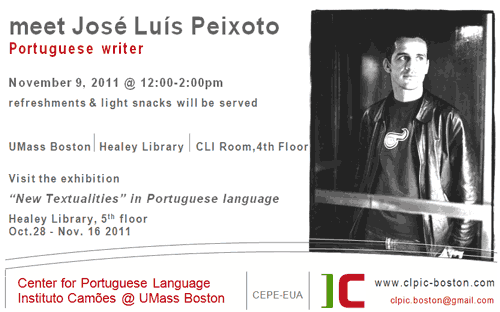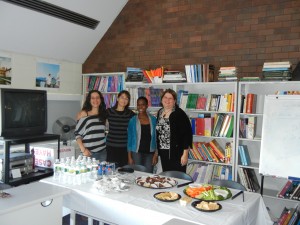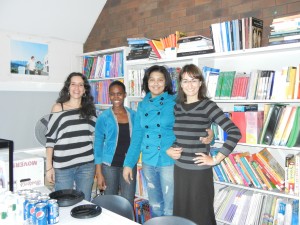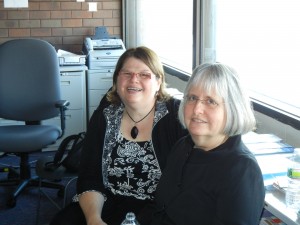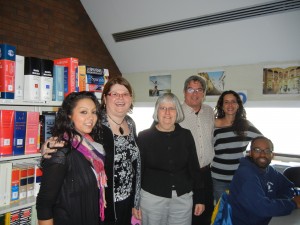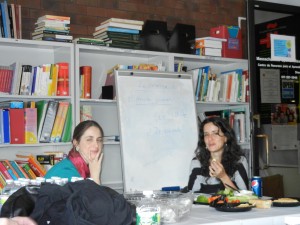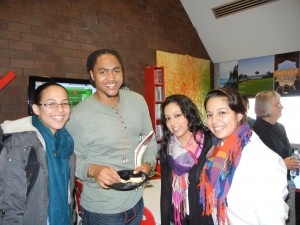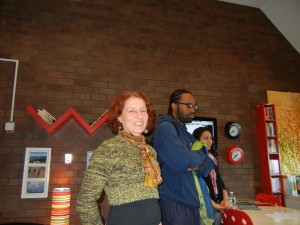The Endowed Susan C. Scheider Prize in Latin America is awarded to outstanding graduating students in Latin American Studies who combine academic excellence with a commitment to social justice.
Professor Schneider, a tenured member of the History Department with a specialty in Latin America and Portugal, helped establish the Latin American Studies Program at UMass Boston and became its second director in 1976. Under her ten-year stewardship the Program flourished, attracting to the University internationally renowned speakers from all over Latin America. Professor Schneider’s commitment to social justice went well beyond academia to active engagement in providing technical assistance to various centers of learning. Professor Schneider was an ardent advocate for students in and out of the classroom. By her vision and commitment, she inspired many other students to pursue graduate studies, facilitating their acceptance to prestigious institutions. Professor Schneider’s untimely death in 1987 was a loss to the whole community. Her colleagues endowed this prize in her memory.
In 2012, we have awarded this prize to Pamela Cataldo, a double major in Spanish and an Individual Major in Latin American Studies. What follows is her reflection on her journey through the Hispanic Studies Department and Latin American Studies Program.
I was born in Chile in 1984, a time of no democracy. This was a time of fear, censorship, brutality and silence. This simple fact affected who I was to become and ingrained in me a deep pursuit of justice, appreciation of democracy and respect for human rights.
I identify myself with those who were survivors of that dictatorship. I identify with those who stood against human rights violations, with those who vanished for fighting back, those who were killed because they were poor, those who lived in hiding and those who fled the country in fear of their lives.
But the way in which I define myself and the clarity I have when I write about it did not come to me initially as truths. I discovered my identity by embracing my country’s political past. This was no easy task and it took courage and a lot of support. I am fortunate and thankful for the team of patient and dedicated professors at the Hispanic Studies Department who helped me define myself in light of my past and heal my wounds.
I emigrated to the United States months before my fifteenth birthday. During high school, there was no place for Chilean identity that included more than the typical geographical question: “Where is Chile?” and whether Chileans liked spicy food since we had named our country after chilies. My family was the only connection to Chilean culture I had. I became embarrassed of being Chilean and Latin American. I decided to forget this part of myself and try to blend in. But my brown skin and accent kept me from being successful in my attempts.
I began my college career at UMass Boston as a Biochemistry major. The first time I walked into the Hispanic Studies Department was to meet the University’s foreign language proficiency requirement. I had to make an appointment to have a conversation in Spanish with the head of the department. The meeting went well and I met the requirement. The head of the department suggested that I look at some of the classes the department offered. I took a catalogue but quickly forgot about it.
Right around that time, I watched the movie “The Motorcycle Diaries” about the coming of age of Argentinian revolutionary Ernesto “Che” Guevara. I never analyzed the power this film had on me aside from its message of equality, education and justice. This movie was a cultural form that embraced the discourse of the Latin American left and portrayed its supporters as inspiring, courageous and intelligent people. After watching this movie, I wanted to embrace my political past. I wanted to be recognized as Chilean and Latin American. I wanted to stand for the rights of the poor and the oppressed.
I went back to the department determined to learn about Latin America and the plea of the poor. I met with Professor Ann Blum to discuss taking her class, “Reform and Revolution in Latin America.” I started with a concentration in Latin American Studies. Eventually, I changed my major to Spanish literature and a concentration in Latin American Studies. I ended my undergraduate career with a double major in Spanish literature and an individual major that I titled “Class, culture and politics in Modern Latin America and the Spanish Caribbean.” My advisor for this highly specific major was Professor Blum.
Even though my interest in Latin America may have been superficial at first, what I achieved during my time at the Hispanic Studies Department was something different than my romantic dream of becoming a revolutionary. When I began to take Spanish literature courses, I became interested in the way we talk and narrate history. Historical novels fascinated me. I wanted to know more than just the stories told. I wanted to know why these stories were written and what they told us about the historical time they were from, identity, and what voices they represented. The completion of my majors would not have been possible if I did not take classes in both history and literature. The novels, paired with the solid historical background, gave me a new set of eyes; eyes that allowed me to understand historical periods with more than just official historical accounts. I began to understand history as a mosaic of voices. In literature, I found voices that were muted or absent from official history.
I found myself in a place far away from what I had originally come to the Hispanic Studies Department for. Where was I? How did I get there? And most importantly, why did this matter? I decided to explore the connection between literature and history and its significance, so I embarked in a beautiful and challenging journey of writing an undergraduate thesis on the topic of the Chilean historical memory.
My thesis advisor was Professor Wanda Rivera-Rivera, and my thesis committee included Professors Ann Blum and Maria Cisterna. I worked closely with Professor Rivera-Rivera for over a year. My thesis was about the Chilean historical memory through the writings of exiled Chilean author Roberto Bolaño. I read many works by him and I chose three that demonstrated that when official historical accounts are manipulated to censor the point of view of the oppressed, their voice finds a place in the world of the invented, fiction.
The Chilean coup d’état against Salvador Allende in 1973 is one of the most argued and polarizing topics of Chilean politics and history. The history books that I read as a young child recognized the coup as one of the best things that could have happened in Chile. The human rights abuses that were committed due to the repression of left supporters were identified as necessary or were completely disregarded. The left and the poor deserved this treatment because they were subversives, it said. When I began reading Chilean literature, I was relieved to find the voices of the oppressed that were missing from the history books. These resembled my experience more than the accounts in history books and gave me a sense of community and a more balanced view of the truth. My thesis allowed me to understand and create a more inclusive account of this historical time. It helped me validate my experience.
By the time I graduated, I had learned that we can talk about history in more than just histories of countries. We can tell the history of ethnic groups, immigrants, women, workers, indigenous people, exiles, writers, politicians, historical movements of the left and the right. When you tell history from these narratives, the world looks different and by virtue of including more groups, the understanding of who we are is richer and more complex. But the task of creating more encompassing historical narratives carries with itself the responsibility of telling your story regardless of the space it is allotted in traditional forms.
My emigration to the United States lends another example where I experienced what is like to be part of a discourse that is manipulated and muted in mainstream historical accounts. In the immigrant discourse, I am a member of the group of people who are unwanted, vilified and misunderstood. At first, I desperately searched for an identity that I could adopt instead of the one that treated me as the alien, the exception, the unwelcomed and the troublesome. The day I decided to accept, embrace and rescue every part of my “undesirable” identity, I was finally able to truly understand who I was. The department provided me with a place where I could explore this identity and where there was room to accept where I came from, challenge what I had learned and understood about my past, and reinvent the way in which I thought about history and my place in it.
The professors at the Hispanic Studies Department helped me tremendously during this journey – they created the journey. The courses, the discussions and the books sparked my need to embrace my past, find my voice, reclaim my memory and chart my future.
Without Ann Blum, Wanda Rivera-Rivera, Maria Cisterna, Reyes Coll-Tellechea, Clara Estow, Jean Phillipe Belleau and many others who helped and encouraged me, this would not have been possible and I would have been lost between the narrow pages of a history that did not belong to me.
Thank you.










